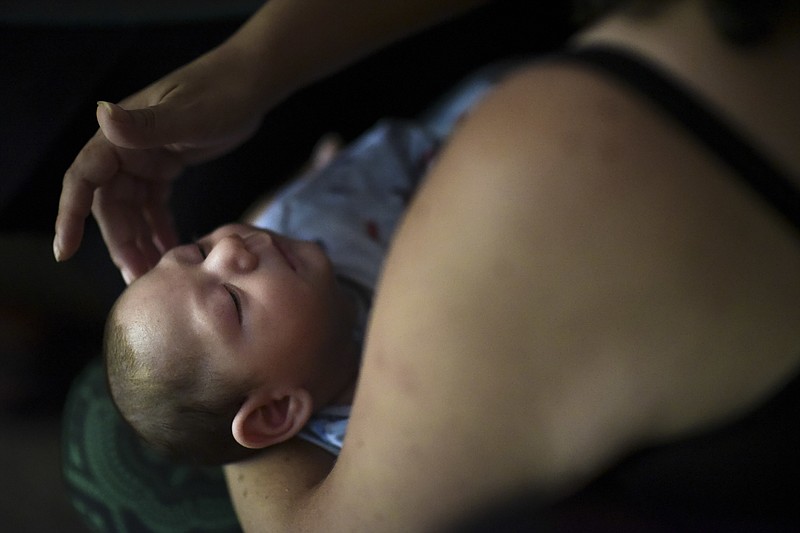The rate of maternal mortality in Missouri appears to be declining, according to an annual report from the Missouri Department of Health and Senior Services.
However, efforts to understand the problem bring to the surface complex societal issues of rampant obesity, health inequity and the ongoing opioid epidemic, according to the Missouri Pregnancy-Associated Mortality Review. The review uses data concerning deaths from 2017, which is the most recent year data was available.
The DHSS is required to annually submit the report, using the findings of the Pregnancy-Associated Mortality Review board. The board is tasked with looking at the causes and contributing factors associated with maternal mortality and with determining interventions that could prevent the deaths.
The report found Black women are four times as likely to die within one year of pregnancy than white women in Missouri. Women on Medicaid are five times more likely to die within one year of pregnancy than those with private insurance.
The board found the pregnancy-related mortality ratio in Missouri was 26 deaths per 100,000 live births, and 80 percent of the deaths were preventable.
Cardiomyopathy, or diseases in the heart muscle, was the leading underlying cause of pregnancy-related deaths.
These diseases have multiple causes, signs and symptoms, but may be treated, according to the American Heart Association website, heart.org.
"In most cases, cardiomyopathy causes the heart muscle to become enlarged, thick or rigid," the site says. "In rare instances, diseased heart muscle tissue is replaced with scar tissue."
The report can be found at health.mo.gov/data/pamr/pdf/annual-report-2020.pdf.
Like other underlying health conditions, cardiomyopathy may go undetected, especially for women who find themselves outside the health care system. The disease's symptoms may include fatigue, weakness, breathlessness, light-headedness, chest pain or others, and may be unreported.
Fortunately, women who become pregnant also become more engaged with the health care system, the report says.
"Pregnancy provides an opportunity to identify and manage underlying chronic diseases, such as obesity, hypertension, diabetes and asthma," it says.
The deaths of women during pregnancy, childbirth or within the first year postpartum can be tragic to families and communities.
"These deaths also act as an early warning system for a society's health, reflecting upon a variety of health determinants ranging from individualized factors to more systemic issues," the report states.
After reviewing cases, the board proposed changes at the patient, provider, faculty, community and systems level to prevent further deaths.
It recommended:
- Standardized practices and procedures across the health care system through utilization of evidence-based practices, such as Alliance for Innovation on Maternal Health bundles.
- Health care systems should increase continuity of care for women in regards to referrals, follow-up care, communication, social determinants of health, and transfer of care during pregnancy and the postpartum period.
- All providers should perform validated depression/anxiety and substance-use screenings at multiple intervals throughout pregnancy and the postpartum period, making referrals to mental health providers as appropriate.
- The state should increase public awareness of the importance of seat belt safety during the perinatal period.
- Providers should be further educated regarding screening, referral and treatment of mental health conditions, substance use disorder and cardiovascular disorders associated with pregnancy.
- Missouri should extend Medicaid coverage to one year postpartum for all conditions (including medical, mental health and substance use disorder), even if the woman did not start treatment prior to delivery, to target women whose condition is exacerbated in the postpartum period. (Currently, MO HealthNet for Pregnant Women program only provides 60-day postpartum coverage for pregnant women whose family income does not exceed 196 percent of the federal poverty level.)
- Expand community outreach to educate women on preconception health, to optimize a woman's health (regarding obesity, tobacco use, chronic medical conditions, etc.) in vulnerable populations to address disparities in health outcomes.
The board recommended standardization regarding the practices and procedures within the health care system. It also called for improvements to continuity of care within and between systems. The board found a demonstrated need for increases in education of providers and patients regarding treatment during and after pregnancy; and the expansion of options for health care, including mental health, according to the report.
The state could use community organizations to help women understand the importance of maintaining good health prior to conception.

